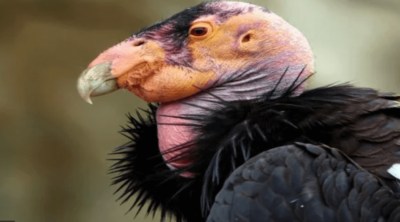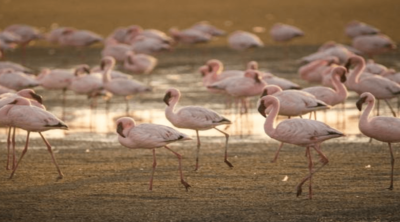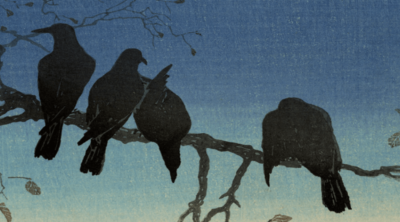
Keeping a duck as a pet is no easy task and knowing what you’re getting yourself into is what matters. If you’re ready to take on this responsibility, then the following article will give you tips on how to care for pet ducks.
When you decide to get a pet, there’s a lot of thinking that goes into whether you can handle it, and if you’ll be able to undertake the responsibility of caring of one. Be it a dog, cat, bird, fish, rabbit, turtle, or any other kind of creature or animal that can count as a pet, keeping one, and of course caring for them, is as big a job as any. You have to make sure they have all they need, that they’re safe in the environment you put them in, that their health is kept in check, and so on. Therefore, be prepared to know how to care for pet ducks, because if you’re not, you’ll be backing out of it in no time and wallowing in regret.
Breeds
It is important to also know which breeds make for a good pet. From the following breeds, you can find out which one is available in your town or elsewhere, and accordingly make arrangements in your home before getting him/ her.
Names
The ecstatic part during the new pet phase is naming the animal that you have bought, and are ready to bring up. So before you take care of this little one I’ve put together a few suggestive pet names, that you may like.
| Male | Female |
|
|
Care
You’ll find here all you need to know about how to raise a duck as a pet of your very own, and what is involved in the process. Keep these precautionary tips and guidelines in mind and you’ll do just fine.
Lifespan is a Non-issue
Wild ducks are known to live for a period of about 20 years or more in some cases. Mallard ducks are known to be good as pets, since they can live up to 27 years at a stretch. Ducks that are domestic in nature, can live to about 15 years, and for a minimum of 10 years. Ducks cannot live on their own, since their dietary needs aren’t supervised and call for random eats that either they find on their own, or those that passersby throw. These ducks when not fed properly, live for not more than three years since their systems aren’t designed to handle all kinds of food when given by strangers.
Quick Care Tips
When taking care of a pet duck there are certain things that need to be taken into consideration like.
- Making sure that they have clean drinking water at all times.
- Enough of light stimulation.
- Dry shelter which is kept clean on a regular basis, which they can return to after they’ve been outdoors. This gives them time to clean and preen themselves, and also waterproof their plumage to help keep skins free from harm.
- Protection from any diseases that they can fall prey to.
- Foods that contain all the important and vital nutrients that they require for good health.
- Get more than one duck, since when kept together they can be quite social, and won’t pose as a threat to one another.
- Make sure you have a water source close by, like a small pond or swimming pool that is safe for them to swim in. They require this in order to clean their beaks, and wash their food down with. Water that is chlorinated is safe for ducks, so don’t worry about that part. Just make sure they don’t get sucked into any vents underwater.
- Use straw or hay when laying down their sleeping area, it works well for ducks. Also, make sure that the shelter you put them in, is spacious and big enough for them to walk around and stretch in.
- Make sure you supervise ducks around kids, and don’t leave them alone without adult supervision. They can be harmless, but it is better to make sure that nipping at them doesn’t become an issue.
- Feed ducks only good foods that pertain to their kind, since anything that is foreign to their system, will be rejected and pose as a threat to them. Bird feeders make for good feeding sources, and should be erected since that way you can keep it clean, and provide adequate food in one place.
- Shower a lot of love and attention on your duck, since they feed off this and like it when owners and others openly show their affection.
Big No-nos and Safe Foods for a Duck Diet
There are certain foods that are all right for ducks to consume, including treats (controlled amounts), but there are some that are absolutely not safe for your duck to ingest.
| Pet Duck Diet | |
| Good | Not Good |
| Shredded carrots | Ice cream |
| Slugs | Seeds |
| Hard-boiled eggs with shell | Preservative based foods |
| Chopped lettuce | Nuts |
| Snails | Chocolate |
| Earthworms | Cakes |
| Cottage cheese | Crackers (painful reaction if eaten) |
| Green vegetables | Popcorn |
| Worms | Sugary snacks |
| Tomatoes | Garlic |
| Pellets | Cookies and other junk foods (human food to be specific) |
A pet duck can be a real treat to have around, especially when watching them wobble on their two webbed feet, with their furry bottoms bobbing from side to side. I hope that your duck doesn’t give you too much trouble, although over the long haul they’ll quieten down and won’t be such a nuisance; all animals need time adjusting to their new owners and surroundings after all.
“A house is not a home without a pet.” – Anonymous


